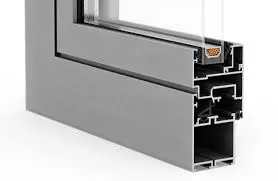Understanding the Properties and Applications of Wrought Iron in Modern Structures
The Allure of Wrought Iron
Wrought iron is a material that has held a prominent place in architectural and artistic endeavors for centuries. Renowned for its strength, malleability, and aesthetic appeal, this alloy has been a versatile choice for both functional and decorative applications. Unlike cast iron, which is brittle, wrought iron is characterized by its ductility, allowing it to be easily shaped and welded.
Historically, the production of wrought iron dates back to ancient times, with archaeological evidence suggesting its use as early as 1200 BC. The process involves heating iron ore to a high temperature and then hammering it, which not only removes impurities but also enhances its strength. This labor-intensive method was perfected throughout the Middle Ages, especially in Europe, where blacksmiths became skilled artisans. By the 18th and 19th centuries, the demand for wrought iron soared with the advent of the Industrial Revolution, leading to its widespread use in bridges, buildings, and ornamental designs.
One of the primary reasons for the popularity of wrought iron is its exceptional durability. Structures made from wrought iron can withstand harsh weather conditions and resist corrosion, making it an ideal choice for outdoor applications. Many historic buildings and bridges constructed from this material still stand today, a testament to its longevity and reliability. When properly maintained, wrought iron can last for generations, preserving both its structural integrity and its aesthetic appeal.
wrought iron

In addition to its practical benefits, wrought iron is celebrated for its beauty. The material can be fashioned into intricate designs, making it a favored choice for decorative elements such as railings, gates, and furniture. Artisans often employ techniques like scrolling and twisting to create elaborate patterns, turning functional pieces into works of art. This artistic versatility has made wrought iron a popular choice for luxury home decor, adding an elegant touch to interiors and exteriors alike.
Moreover, wrought iron possesses a timeless quality that transcends trends. Its classic appearance fits seamlessly with various architectural styles, from traditional to modern. In contemporary design, wrought iron is often combined with other materials such as glass and wood to create striking contrasts and unique compositions. This blend of old and new exemplifies the enduring appeal of wrought iron, as it continues to be incorporated into modern life while honoring its rich history.
Wrought iron also boasts an environmental advantage. Unlike many materials that undergo extensive processing, the production of wrought iron is relatively sustainable. The recycling potential of iron means that old wrought iron can be melted down and repurposed into new products, reducing waste and the need for new raw materials. This attribute aligns with the growing emphasis on sustainability in design and construction, making wrought iron not just a beautiful choice but also an ecologically responsible one.
In conclusion, wrought iron remains a significant material in both construction and art. Its combination of strength, beauty, and sustainability ensures that it will continue to be cherished for years to come. Whether in the ornate designs of a gate or the robustness of a bridge, wrought iron serves as a reminder of human ingenuity and craftsmanship. As we move forward into a future that prioritizes both aesthetic and environmental considerations, the legacy of wrought iron will undoubtedly endure, captivating generations with its charm and resilience. Embracing both its historical significance and contemporary relevance, wrought iron holds a special place in the tapestry of materials that shape our built environment.
-
Wrought Iron Components: Timeless Elegance and Structural StrengthNewsJul.28,2025
-
Window Hardware Essentials: Rollers, Handles, and Locking SolutionsNewsJul.28,2025
-
Small Agricultural Processing Machines: Corn Threshers, Cassava Chippers, Grain Peelers & Chaff CuttersNewsJul.28,2025
-
Sliding Rollers: Smooth, Silent, and Built to LastNewsJul.28,2025
-
Cast Iron Stoves: Timeless Heating with Modern EfficiencyNewsJul.28,2025
-
Cast Iron Pipe and Fitting: Durable, Fire-Resistant Solutions for Plumbing and DrainageNewsJul.28,2025
-
 Wrought Iron Components: Timeless Elegance and Structural StrengthJul-28-2025Wrought Iron Components: Timeless Elegance and Structural Strength
Wrought Iron Components: Timeless Elegance and Structural StrengthJul-28-2025Wrought Iron Components: Timeless Elegance and Structural Strength -
 Window Hardware Essentials: Rollers, Handles, and Locking SolutionsJul-28-2025Window Hardware Essentials: Rollers, Handles, and Locking Solutions
Window Hardware Essentials: Rollers, Handles, and Locking SolutionsJul-28-2025Window Hardware Essentials: Rollers, Handles, and Locking Solutions -
 Small Agricultural Processing Machines: Corn Threshers, Cassava Chippers, Grain Peelers & Chaff CuttersJul-28-2025Small Agricultural Processing Machines: Corn Threshers, Cassava Chippers, Grain Peelers & Chaff Cutters
Small Agricultural Processing Machines: Corn Threshers, Cassava Chippers, Grain Peelers & Chaff CuttersJul-28-2025Small Agricultural Processing Machines: Corn Threshers, Cassava Chippers, Grain Peelers & Chaff Cutters












